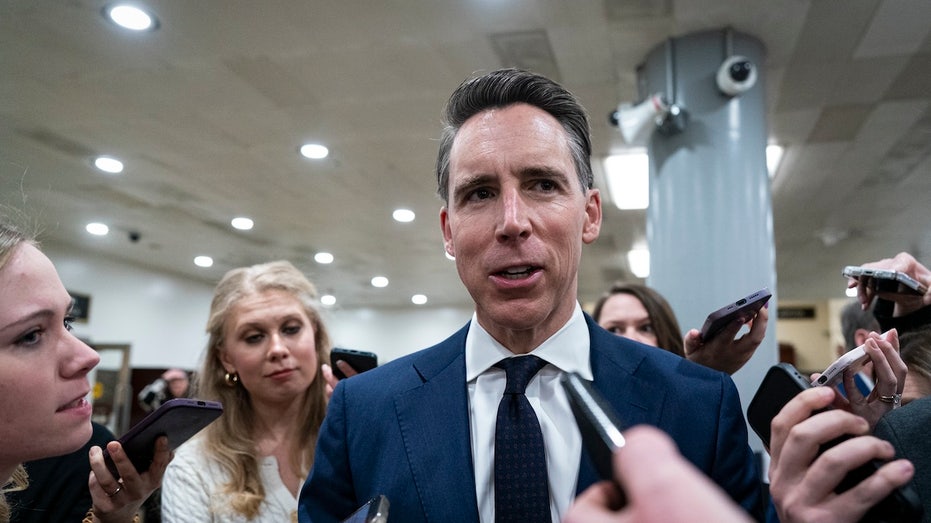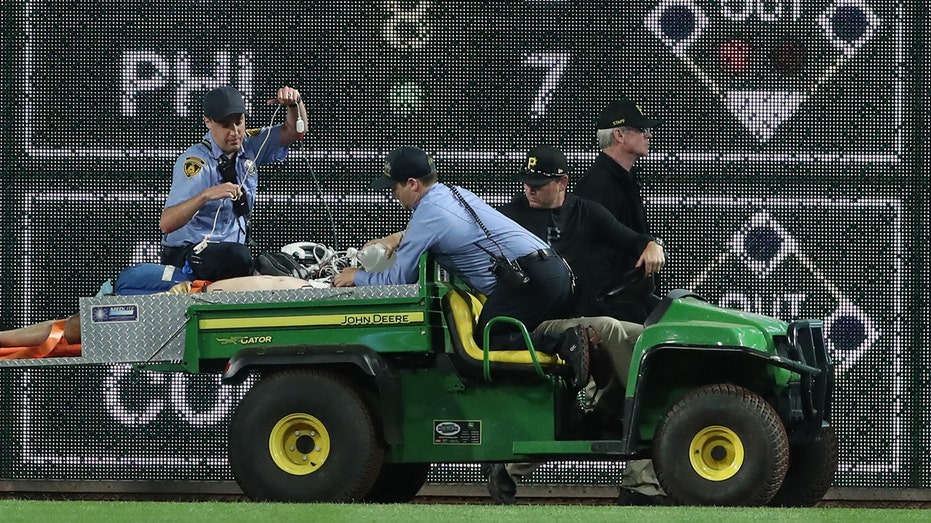Mini-strokes may cause surprising long-term health issue, experts warn

Prolonged fatigue could indicate poor sleep habits — but it could also be a lingering effect of mini-strokes.
That’s according to a new study from Aalborg University Hospital in Denmark, which was published this week in Neurology, the medical journal of the American Academy of Neurology (AAN).
A mini-stroke — medically known as a transient ischemic attack (TIA) — is a temporary blockage of blood flow to the brain that causes a "short period of symptoms," according to Mayo Clinic.
STROKE, DEMENTIA AND DEPRESSION SHARE THESE 17 PREVENTABLE RISK FACTORS
The study found that people who experience a TIA are more likely to report prolonged fatigue lasting up to one year.
"Patients with a presumed transient event reported fatigue at levels comparable to a stroke," lead study author Birgitte Hede Ebbesen, PT, PhD, a physiotherapist at Aalborg University Hospital, told Fox News Digital.
The researchers followed 354 people averaging 70 years of age who had experienced a mini-stroke.
Over a 12-month period, the participants reported their level of fatigue in five areas: overall tiredness, physical tiredness, reduced activity, reduced motivation and mental fatigue, according to a university press release.
HEART DISEASE COULD BE PREVENTED WITH THIS ONE SIMPLE TEST
On a scale ranging from 4 to 20 — with 20 being the most fatigued — the participants reported an average score of 12.3 in the two weeks after the mini-stroke, 11.9 at three months, 11.4 at six months and 11.1 at the one-year mark.
Two weeks after the mini-stroke, 61% reported high levels of fatigue. At three, six and 12 months, 54% said they experienced fatigue.
Those who reported prolonged fatigue were twice as likely to have experienced anxiety and/or depression, the study found. Some also reported
"We had encountered fatigue among patients with TIA in clinical settings, so we knew it was there — but the frequency still surprised us," Modrau told Fox News Digital.
FEELING EXTRA TIRED? THIS VIRUS COULD BE THE CULPRIT, STUDY SUGGESTS
"Long-term fatigue was common in our group of study participants, and we found that if people experience fatigue within two weeks of leaving the hospital, it is likely they will continue to have fatigue for up to a year."
Based on these findings, Modrau suggests that people diagnosed with a transient ischemic attack should be monitored for lingering fatigue in the ensuing weeks and months.
"This could help us better understand who might struggle with fatigue long-term and require further care."
The more commonly known symptoms of stroke include face drooping, arm weakness or slurred speech, which usually resolve within a day, according to Modrau. Some patients also reported long-term cognitive issues.
Bradley Serwer, an interventional cardiologist and chief medical officer at VitalSolution, an Ingenovis Health company that offers cardiovascular and anesthesiology services to hospitals nationwide, confirmed that fatigue is very common — and sometimes "debilitating" — following a stroke.
"Fatigue is multifactorial and can rarely be attributed to a single cause," Serwer, who was not involved in the study, told Fox News Digital.
The Maryland-based cardiologist shared the following potential reasons for fatigue following a mini-stroke.
Brain healing: "After a stroke, the brain tries to heal itself," Serwer said. "This process causes the brain to work harder to ‘rewire’ itself, which results in a higher demand for energy. This often leaves patients feeling drained or fatigued."
Increased inflammation: This can occur due to the immune response following a TIA.
Lower levels of neurotransmitters in the brain: Reduced levels of chemicals like serotonin, dopamine and norepinephrine can result in depression, fatigue or lack of motivation, according to Serwer.
Sleep disturbances: "These are very common after a stroke and can lead to significant sleep deprivation," the cardiologist said.
Medications: Drugs used to treat strokes may have adverse side effects, including fatigue. "Betablockers are excellent blood pressure medications and are often prescribed after a stroke or heart attack, but they may cause notable fatigue," Serwer noted.
Other factors: "Simple tasks may require more mental effort than before the injury," the cardiologist said. "Depression or anxiety after a stroke can also be a confounding predictor of fatigue."
CLICK HERE TO SIGN UP FOR OUR HEALTH NEWSLETTER
The study did have some limitations, the researchers noted.
"It is an observational study and therefore we cannot determine causality," Modrau said.
"Results are based on self-reported questionnaires, and we cannot be certain that relatives didn’t help fill them out or influence results."
The researchers also did not have information on pre-TIA fatigue levels, although previous studies suggested that it was "much more frequent" after mini-strokes.
Looking ahead, Modrau said she hopes healthcare providers begin to acknowledge lasting fatigue after TIA and provide care pathways for these patients.
For more Health articles, visit www.foxnews.com/health
"Up until now, patients with lasting challenges after TIA have been left alone in many cases," she told Fox News Digital.
"We as a society should start to acknowledge their difficulties instead of viewing them as ‘the lucky ones,’" she continued. "My aim with this study has been to give these patients a voice – and to start to listen to their struggles."
What's Your Reaction?
 Like
0
Like
0
 Dislike
0
Dislike
0
 Love
0
Love
0
 Funny
0
Funny
0
 Angry
0
Angry
0
 Sad
0
Sad
0
 Wow
0
Wow
0























